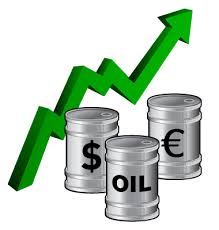
Oil prices started Monday by edging up and extending gains from the previous session—in part because of the U.S. sanctions against Venezuela.
West Texas Intermediate futures started at $55.38 per barrel, up 12 cents or 0.2 percent from the last settlement. WTI ended up 2.73 percent in the last session at its highest close since Nov. 19, 2018.
International Brent Crude oil futures began at $63.04 and were 29 cents higher or 0.5 percent above the last close. Brent also rose more than 3 percent in the previous session to its highest close since Nov. 21, 2018.
Output declines from the Organization of the Petroleum Exporting Countries (OPEC) as they make good on their pact to curb a supply overhang were compounded by falling U.S. oil rig counts and sanctions on Venezuelan oil sales according to a report by CNBC.
“While Venezuela’s output reportedly rose last month, fresh U.S. sanctions on the country could see 0.5 to 1 percent of global supply curtailed,” Vivek Dhar, commodities analyst for Commonwealth Bank of Australia, said in a note on Monday.
The sanctions will sharply limit oil transactions between Venezuela and other countries and are similar to those imposed on Iran last year, experts said after examining details posted by the Treasury Department.
OPEC oil supply fell in January by the largest amount in two years despite sluggish production declines from Russia, according to a Reuters survey.
Russian oil output in January missed the target for the output cuts, Energy Ministry data showed on Saturday. Production last month declined to 11.38 million barrels per day (bpd), but that was only down by 35,000 bpd from its October 2018 level that is the baseline for the pact.
Russian Energy Minister Alexander Novak has said the country’s overall cuts from the October baseline would total 50,000 bpd in January. Russia has pledged to reduce oil output by 230,000 bpd from October.
U.S. energy firms last week cut the number of oil rigs operating to their lowest in eight months, to 847, as some drillers followed through on plans to spend less on new wells this year.
“The collapse in oil prices late last year has resulted in more cautious spending by U.S. oil explorers,” said Dhar.
U.S. President Donald Trump last week said he would meet with Chinese President Xi Jinping in the coming weeks to try settle the disputes, and there are hopes that the two sides will come to an agreement.
Fitch Solutions said on Monday that oil markets overall had a “fundamentally bullish outlook due mainly to the supply cuts led by OPEC as well as increasing oil demand despite the slowdown in economic growth.”





